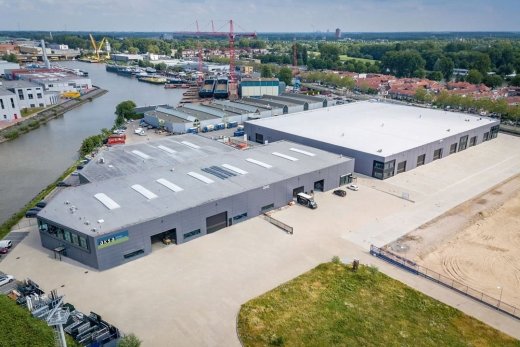In a world where every second of downtime can cost thousands, if not millions, of euros, data centers have become one of the most power-sensitive environments in modern industry. As cloud computing, AI, streaming services, and remote work expand globally, the demand for reliable digital infrastructure is greater than ever. At the heart of this reliability lies one critical factor: uninterrupted power.
Backup power systems are not just an add-on for data centers (or datacenters, as commonly written in UK English); they are an operational necessity. In this article, we explore why backup power is so essential, the technologies involved, and how Power Genset NL supports European data centers in meeting 24/7 uptime requirements.
Why Backup Power Is Non-Negotiable for Data Centers
According to Uptime Institute’s 2024 Global Data Center Survey, 60% of outages cost over $100,000, and 20% exceed $1 million. Many of these incidents stem from power failure, often triggered by utility disruptions, equipment failure, or weather-related damage.
Unlike traditional businesses, data centers host critical infrastructure for banking systems, healthcare networks, AI models, e-commerce platforms, and cloud services. Any power loss -even for seconds- can:
- Interrupt service delivery
- Corrupt stored data
- Violate SLAs (Service Level Agreements)
- Damage customer trust and brand reputation
That’s why backup power isn’t optional, it’s part of the core infrastructure.
Components of a Robust Backup Power System
Modern datacenters use a layered power protection approach that includes:
- Uninterruptible Power Supply (UPS): Delivers instant power during short outages or transfer delays
- Diesel Generators: Take over after a few seconds and sustain operations for hours or days
- Automatic Transfer Switches (ATS): Seamlessly shift load from utility to backup source
- Battery Storage or Flywheels: Supplement UPS systems for smoother transitions
Power Genset NL specializes in supplying Stage V diesel generators integrated with ATS and remote monitoring systems, ideal for data center redundancy.
Power Genset NL’s data center range includes Cummins, Perkins, and Mitsubishi powered DCC-rated products – with Tier III and Tier IV compliance letters from the Uptime Institute.
Diesel Generators: The Backbone of Backup Power
Diesel generators remain the standard for medium- and large-scale data centers due to their high output, fuel efficiency, and ability to operate under full load for extended periods. Key benefits include:
- Fast start-up time (within 10–15 seconds)
- Load handling capacity for servers, cooling systems, and fire suppression
- Long runtime with on-site fuel reserves
- Compliance with EU Stage V emission standards
Power Genset NL provides scalable diesel generator solutions from 100 kVA to over 2000 kVA, tailored to Tier III and Tier IV facility requirements.
What is DCC Rating?
DCC (Data Centre Continuous) rating, as defined by ISO 8528-1, refers to a generator’s ability to operate continuously under variable loads without a time limit—an essential requirement for mission-critical facilities like datacenters.
Meeting Uptime Requirements: Tier Standards
Data centers often aim to meet Uptime Institute’s Tier III or Tier IV standards, which define power reliability and redundancy levels:
- Tier III: N+1 redundancy, 99.982% uptime (~1.6 hours of downtime per year)
- Tier IV: 2N+1 redundancy, 99.995% uptime (~26 minutes of downtime per year)
Achieving these standards requires dual power paths, fault tolerance, and reliable backup systems that can carry full load independently. Diesel generators play a central role in meeting these specs.
The Role of Remote Monitoring and Automation
Modern datacenters require real-time visibility into all power systems. Generator control panels now include features such as:
- Remote monitoring via IP or GSM
- Fuel level tracking
- Automated testing cycles
- Alert systems for early fault detection
At Power Genset NL, our generator packages include remote diagnostics and integration with data center infrastructure management (DCIM) systems.
Sustainability and Emissions Compliance
With increasing scrutiny over energy use and emissions, data centers must also consider the environmental impact of backup power. Stage V diesel generators use:
- Selective Catalytic Reduction (SCR) to reduce NOx
- Diesel Particulate Filters (DPF) to reduce soot
- Low-noise enclosures for urban or mixed-use zones
Our generator systems are fully compliant with the latest EU regulations and are designed with sustainability goals in mind.
Choosing the Right Backup Power Partner
Selecting a trusted backup power provider is critical for uptime and compliance. Key factors to consider include:
- Expertise in generator sizing and integration
- Compliance with local and EU-wide environmental and safety standards
- Ability to provide remote support and on-site servicing
- Customizable solutions for your data center’s layout and tier level
Power Genset NL has decades of experience helping data centers across Europe deploy scalable, compliant, and efficient diesel generator systems
Final Thoughts
In data centers, backup power is the foundation of reliability. Diesel generators remain the most trusted solution for large-scale, high-uptime environments. They ensure uninterrupted power, compliance with tier standards, and resilience against unexpected outages.
Power Genset NL works closely with datacenter operators to design, deliver, and support generator systems that meet mission-critical demands. Whether you manage a hyperscale facility or a private enterprise cluster, our solutions ensure your infrastructure stays powered, protected, and compliant.
📩 Need help designing your backup power strategy? Contact sales@powergenset.nl to discuss a tailored generator solution for your data center.

